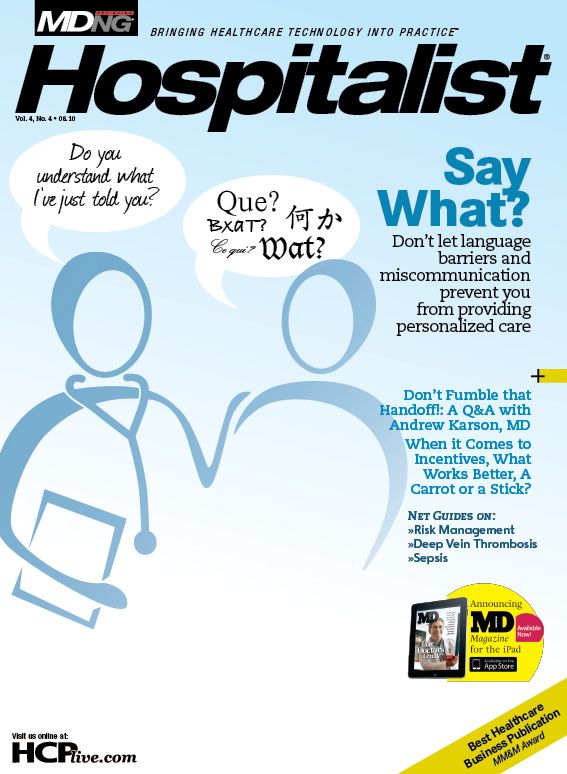Can an Incentive Plan Truly Be a Tool of Transformation?
Effective hospitalist incentive programs should foster teamwork and good citizenship, target results that are able to be accurately measured, and focus on outcomes over which your hospitalists have direct control.
Stimulating one to take action with the expectation of reward can come in many forms. This catalyst may come in the very personalized form of patient satisfaction or the mundane accuracy of coding and chart documentation. Traditional incentive plans reward productivity and performance at a minimum.
Review of the latest hospitalist surveys suggest that the majority of hospitalist programs are moving away from paying their providers strictly by salary. Most programs offer a base salary in conjunction with an incentive/bonus plan (often described using phrases like “mixed salary and productivity/performance-based compensation”). There are many good reasons why your program should consider a mixed compensation plan. For instance, a well-designed plan can change unwanted behaviors or take performance to another level. In other instances, it rewards teamwork or good citizenship. Perhaps most importantly, this plan instills a sense of ownership within each hospitalist.
Ideally, the incentive/bonus compensation methodology should support the practice goals and encourage the hospitalists to think of themselves as owners of the practice, even if they are contracted employees. In my opinion, it is not good enough to instill ownership for individual gain; the incentive plan should also foster teamwork and good citizenship. This can be accomplished through implementation of team metrics as well as individual metrics. The incentive component should be connected to metrics that require the hospitalist to "stretch" to achieve it, but should not be so difficult to achieve that the physician ignores the incentive.
Your program should be confident that it can measure the desired indicator(s) before implementation of the incentive plan. If you fail to do this you may end up committing to pay for suboptimal performance. In my consultative experience, many hospitalist practices are not confident in their ability to accurately measure certain metrics. Therefore they feel compelled to pay out the full bonus for that indicator (because it is not the employee's fault that the measure cannot be accurately measured). In essence these programs may be rewarding substandard work.
Programs traditionally address work ethic by tracking productivity (RVUs). Clinical performance measures may include monitoring unexpected 72-hour/30-day readmission rates, morbidity and mortality rates, or length of stay (this can be a dangerous indicator to reward for obvious reasons, particularly with hospital-employed programs). Performance measures using the Joint Commission's core measures can also be utilized. Some programs monitor financial performance by tracking P4P measures, resource utilization (although this can be very difficult to measure), and cost per case.
Before linking an agreed-upon quality measure to compensation, the hospitalist practice must determine whether the measure can be changed by hospitalist physicians. Furthermore, if performance has been maximized such that any further movement may result in a paradoxical outcome (eg, length of stay can only be decreased so much before it negatively impacts clinical outcomes), then the measure should be removed from the plan (but still monitored by the practice). Your practice should also avoid incentive metrics that cannot be attributed to a specific individual (unless it is a team metric).
The great Austrian physicist Erwin Schrödinger used the phrase “observer's paradox” to describe a situation in which an observation or measurement itself affects an outcome, so that the outcome as such does not exist unless the measurement is made. By measuring certain hospitalist performance components such as quality, satisfaction, accurate coding and chart documentation, hospital-institutional alignment, behavioral change, and ability to produce increased service lines, programs can affect the positive outcomes they so desire. With careful planning and consensus building, hospitalist report cards should improve quality of care, reduce variability in practice patterns, provide hospitalists with benchmarks to improve performance, and enable hospital administrators to appreciate at a glance the intrinsic value of their hospitalist service.
Ken Simone, DO, FHM, is a board-certified family physician and the founder and president of Hospitalist and Practice Solutions, a consulting company that develops, restructures, and redesigns hospitalist programs.
